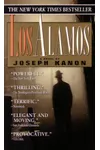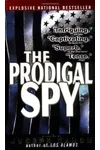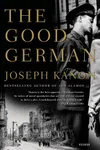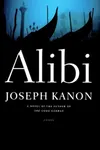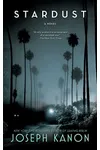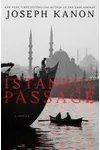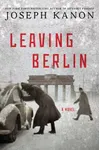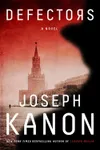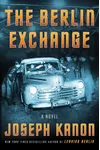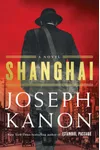Picture an American storyteller who turned the shadowy aftermath of World War II into page-turning gold—meet Joseph Kanon! Born in 1946, this master of spy fiction didn’t pick up a pen until his late 40s, but when he did, he hit the ground running with *Los Alamos*, a debut that snagged the Edgar Award and set the stage for a thrilling career. With a knack for blending historical grit with heart-pounding suspense, Kanon’s novels pull you into a world of secrets, moral ambiguity, and post-war intrigue.
Before he was a literary star, Kanon was a publishing bigwig, shaping books rather than writing them. But when he swapped boardrooms for typewriters, he brought a sharp eye for detail and a love for history that’s made him a standout in the spy genre. Think John le Carré with a Hollywood twist—his work even caught Steven Soderbergh’s eye for *The Good German*.
The Making of Joseph Kanon
Born in Pennsylvania in 1946, Joseph Kanon grew up with a passion for stories that led him to Harvard University and Trinity College, Cambridge. As a young undergrad, he flexed his writing chops with short stories in *The Atlantic Monthly*. But the literary life took a backseat as he climbed the ranks in publishing, eventually becoming editor-in-chief and CEO at Houghton Mifflin and E.P. Dutton. It wasn’t until 1995, at age 49, that he decided to trade executive suites for espionage, diving into the world of fiction with a debut that would redefine his legacy.
Joseph Kanon’s Unforgettable Stories
Kanon’s novels are like time machines—drop into *Los Alamos* (1997), and you’re in 1945 New Mexico, unraveling a murder amid the Manhattan Project’s atomic race. It’s a tense, atmospheric tale that won him the Edgar Award for Best First Novel and hooked readers worldwide. Then there’s *The Good German* (2001), a Berlin-set thriller where journalist Jake Geismar digs into a soldier’s death, only to unearth deeper secrets. Hollywood loved it, turning it into a film with George Clooney and Cate Blanchett.
Don’t miss *Leaving Berlin* (2014), a Cold War gem where a writer turned CIA spy navigates love and betrayal in 1949’s rubble-strewn city. Or *The Berlin Exchange* (2022), a pulse-pounding swap of spies across the Iron Curtain. Kanon’s style? Think meticulous research meets moral complexity—his characters wrestle with loyalty and survival in a world where nothing’s black-and-white. His settings, from post-war Berlin to Istanbul, practically leap off the page.
Why Joseph Kanon Matters
Joseph Kanon isn’t just spinning yarns—he’s rewriting how we see the spy genre. His books bridge history and fiction, shining a light on the messy, human side of espionage in a way that’s both thrilling and thought-provoking. Critics and fans alike call him a modern master, with awards like the Hammett and Anne Frank Human Writers honors backing that up. For readers, he offers a front-row seat to a pivotal era, proving that the past can still keep us on edge.
His influence stretches beyond bookshelves—*The Good German* hit the big screen, and his knack for vivid settings and flawed heroes keeps inspiring writers and filmmakers. Kanon’s legacy is a reminder that great stories don’t just entertain; they make us question, feel, and remember.
- About Joseph Kanon:
- Born: 1946 in Pennsylvania, USA
- Key Works: *Los Alamos*, *The Good German*, *Leaving Berlin*
- Awards: Edgar Award (1998), Hammett Award
Ready for a literary adventure? Snag *Los Alamos* and dive into Joseph Kanon’s world of spies, secrets, and suspense—you won’t look back!
